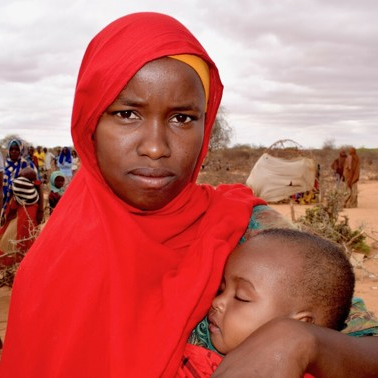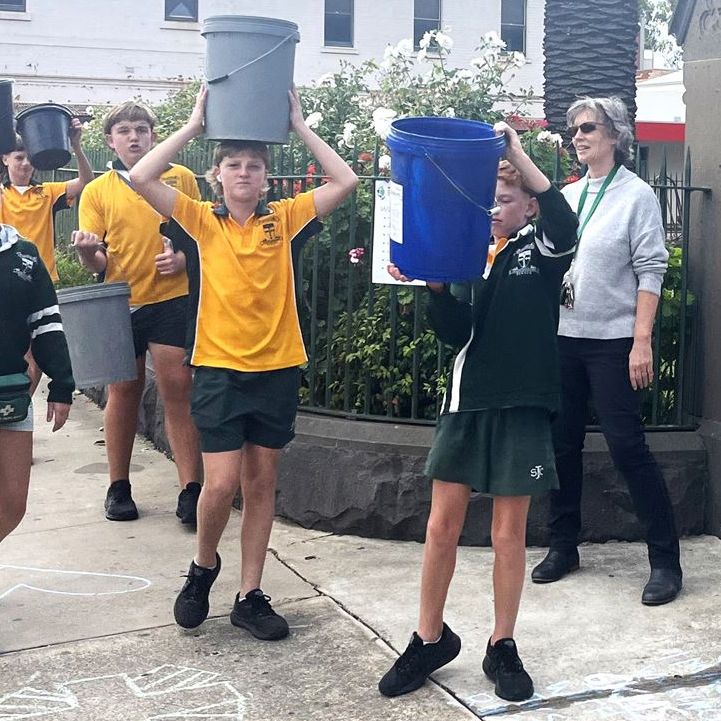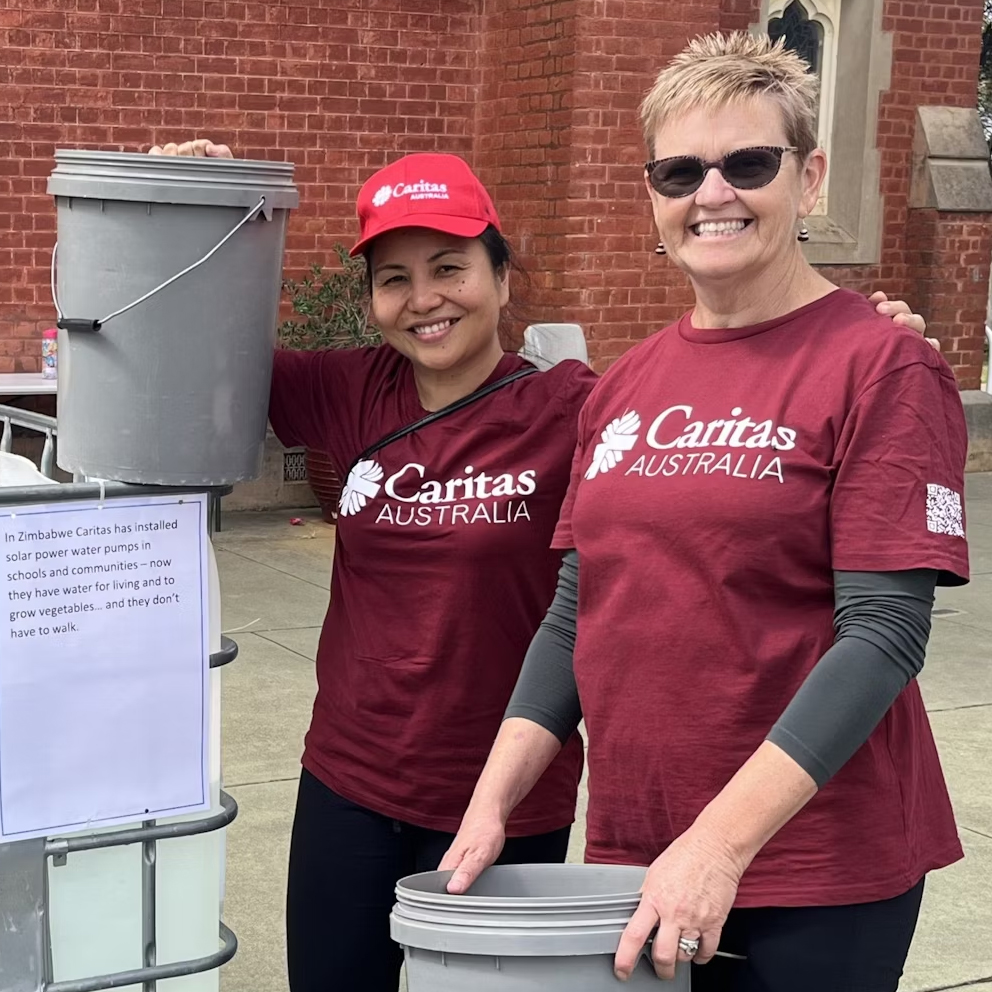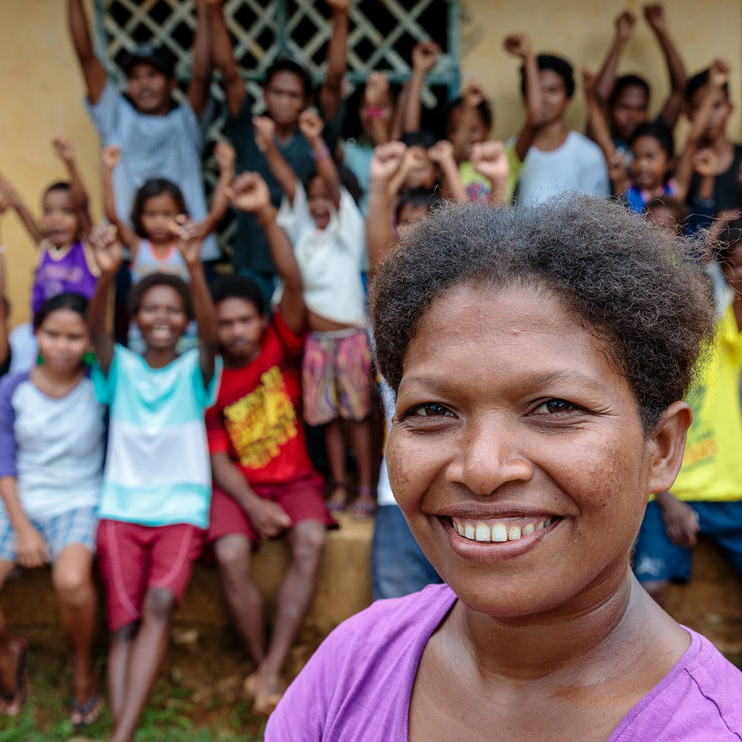Gaza War
The situation in Gaza is catastrophic. Innocent women and children are facing famine and starvation. Your support is needed now.
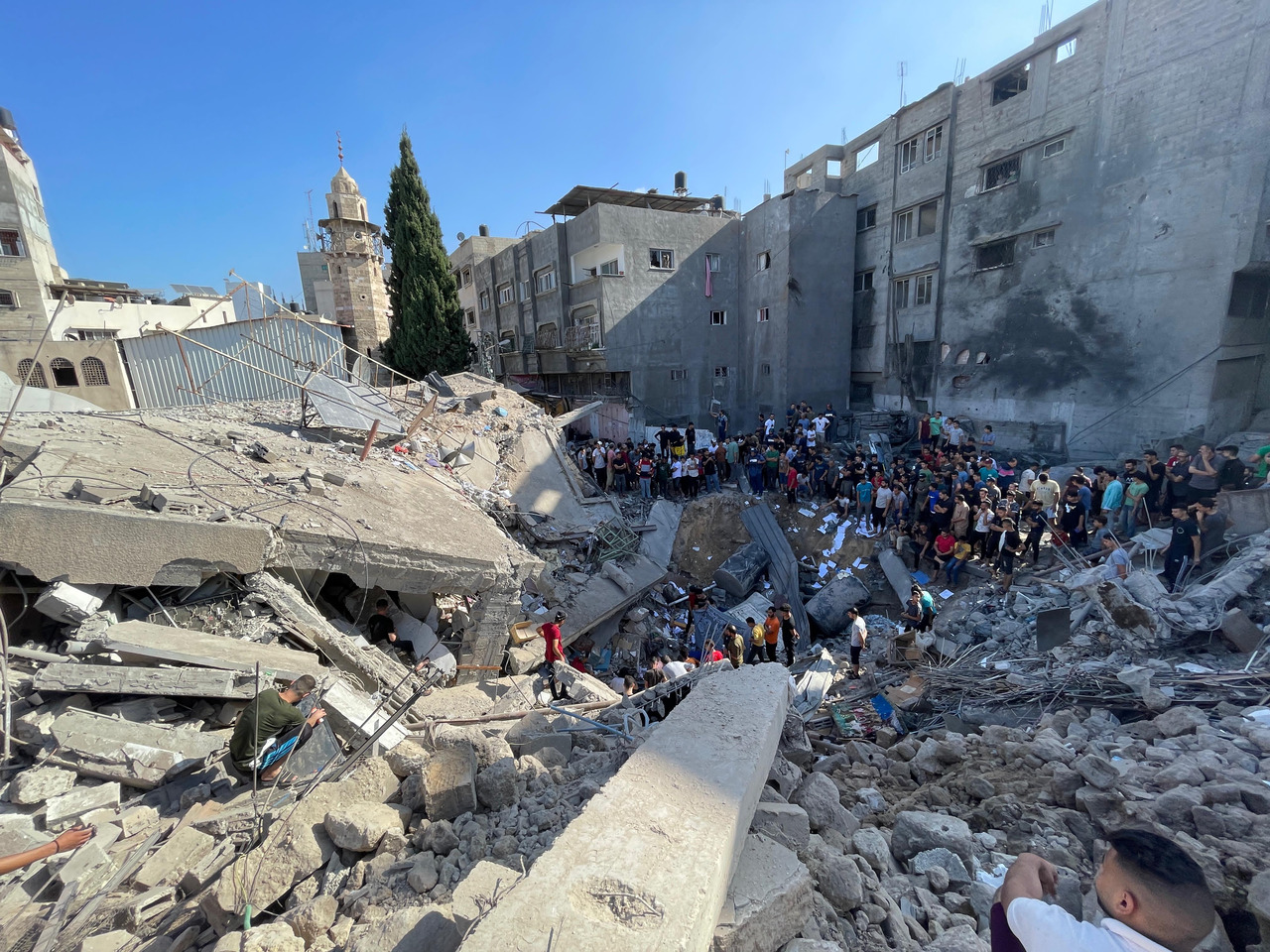
Remnants of a collapsed church following an airstrike in Gaza. Photo: Caritas Jerusalem.
People in Gaza
35,000 people
have been killed in Gaza, most of them were women and children.
1.7 million people
have been forced to flee their homes.
2.2 million people
do not have enough to eat
1 million people
are on the brink of starvation
Our partners are on the ground providing vulnerable communities with:
Food and water provisions
Emergency Shelter
Household items including mattresses and blankets
Health and Psychosocial Support
What is the current situation in Gaza?
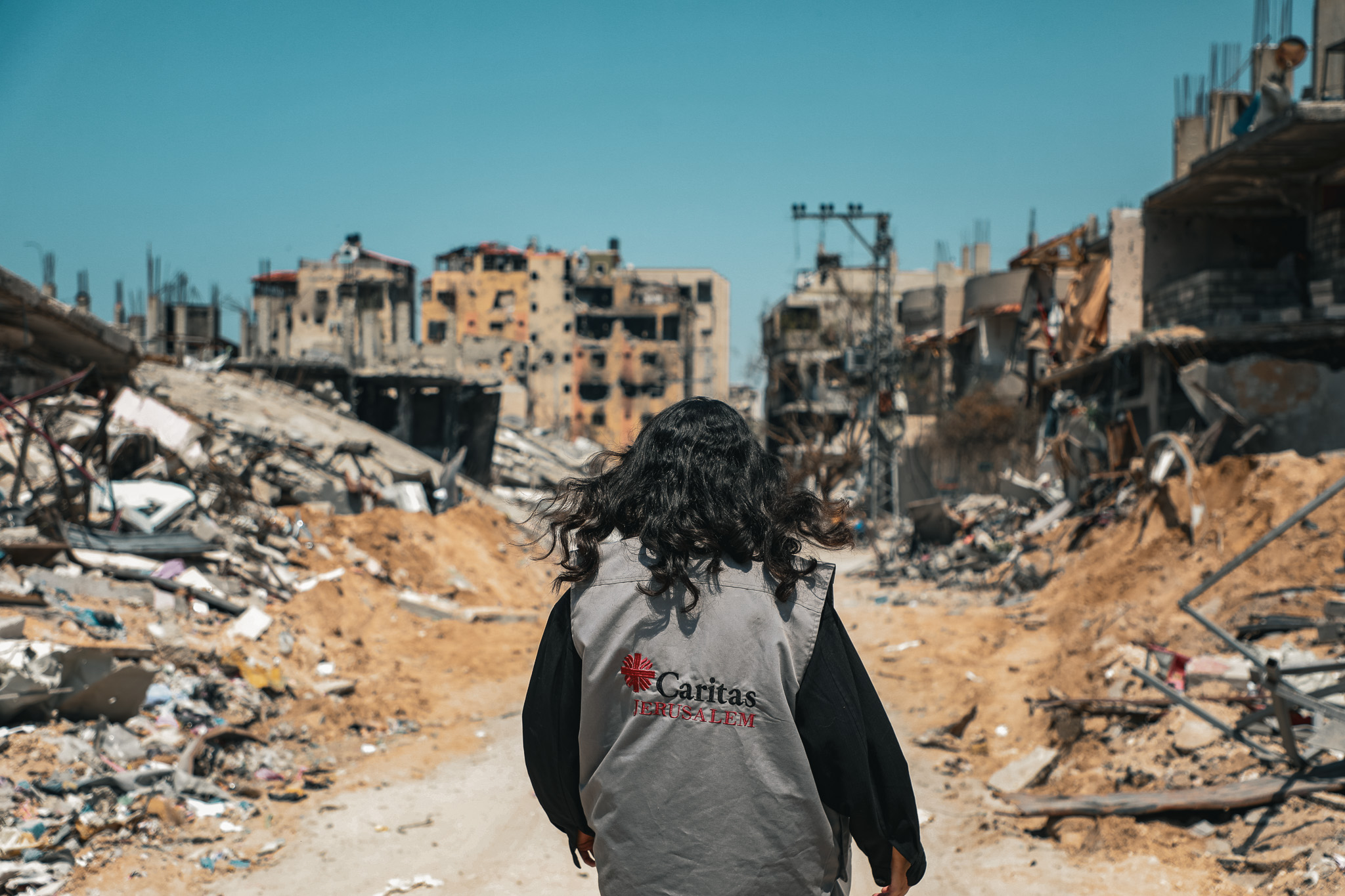
A Caritas worker walks through the destruction in Gaza. Photo credit: Caritas Jerusalem.
Key Issues
- Homes, hospitals and essential water and sanitation infrastructure have been destroyed.
- Food deprivation has reached extreme levels. Famine is imminent with half of the population on the brink of starvation.
- Gaza has become the most dangerous place in the world to be a child, according to UNICEF. Children make up roughly half of the Gaza's population and they are dying at an alarming rate.
- Residents are also enduring lack of access to medical care, safe shelter and clean water. Infectious diseases are on the rise in the crowded conditions.
- The escalation of military activity in Rafah, southern Gaza, has displaced hundreds of thousands of people, making life even harder for thousands of families who have already been displaced several times.
- Meanwhile, those in Jerusalem and the West Bank are under increasingly dire economic stress due to widespread loss of income, leaving families struggling to cover the cost of basic needs such as food and medicine.
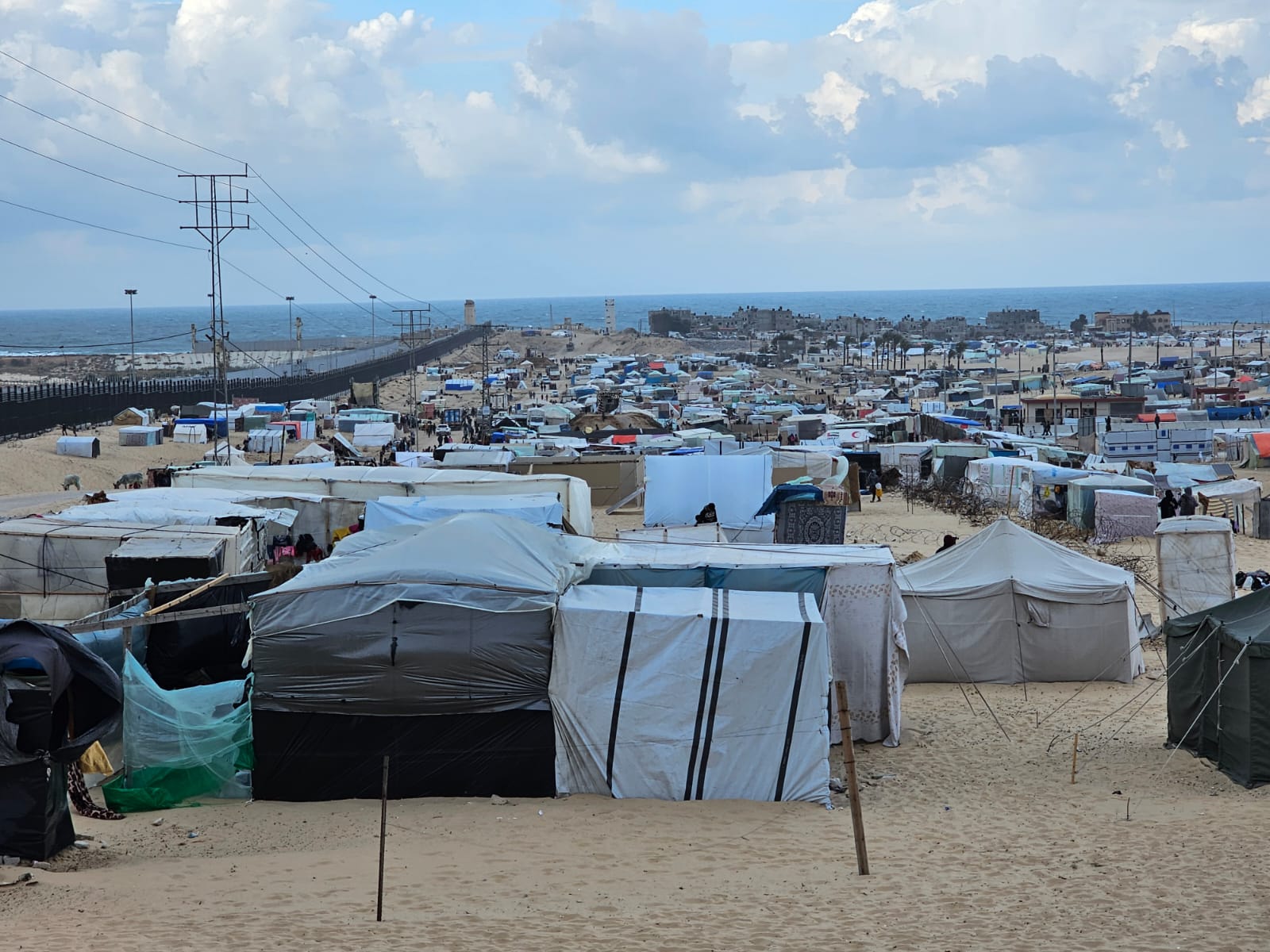
Temporary shelters housing people displaced by the conflict in Gaza. Photo credit: CRS.
Our Response
Our efforts are responsive to the rapidly-changing context, and mindful of people’s holistic needs—both physical and emotional—at a time of tremendous uncertainty.
Our partners on the ground are working tirelessly to provide urgent assistance to people displaced and affected by the war in Gaza.
Working with our partner Catholic Relief Services (CRS), we have been able to assist more than 670,000 people in Gaza, as well as thousands of others across the region.
To date, our partners have provided over 666,000 people with food parcels, and more than 170,000 people with multi-purpose cash assistance. Over 83,000 people received bedding supplies and more than 13,400 people were assisted with hygiene supplies.
Video
Caritas workers share perspectives on the war in Gaza
“Rafah, and the surrounding area, is where people from all over Gaza, many of them children, have fled to over the past few months to escape the conflict.
It is the area where our current activities have been able to continue and the only entry point for all humanitarian aid and essential items.
Changing that will significantly worsen humanitarian conditions in Gaza - an unthinkable reality - which could bring more tension to the Middle East as suffering, especially that of children, has an inflammatory effect.”
Stories from Gaza
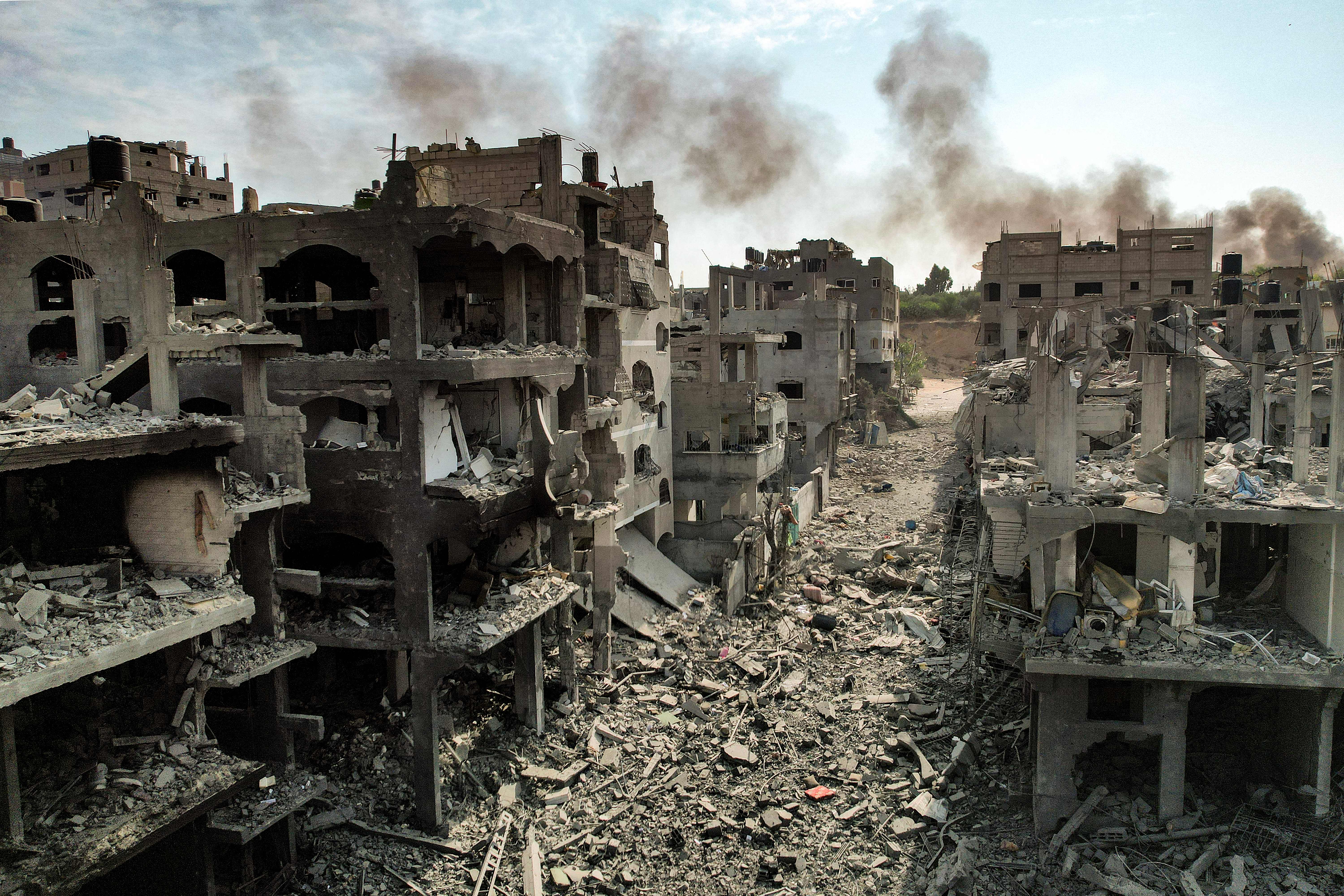
Aerial view of buildings destroyed by Israeli airstrikes in the Jabalia camp for Palestinian refugees in the City of Gaza – Credit Yahya Hassouna/Getty Images.
Reflections on the 6 month anniversary of the start of the war
April 7 marked six months since the terrorist attacks which sparked the war on Gaza. During those six months, the world looked on in horror as the Israeli military ceaselessly bombarded the civilian population of Gaza, leaving tens of thousands dead, including over 13,000 children.
We continue to stand in solidarity with the civilians of Gaza and call for an immediate and permanent ceasefire and unimpeded access to humanitarian workers. The people in Gaza must be protected, and the violence and suffering must end.
While international pressure for a ceasefire continues to mount, the Israeli government has given no indication that it plans to end hostilities, and Hamas has given no indication that they will return the remaining hostages in the near future. The situation will continue to be dire for civilians. The work of aid organisations in the region has never been more vital. We will continue to work with our partners to deliver lifesaving aid, and to advocate for our government to do more to ensure a ceasefire is reached. Human suffering must stop.
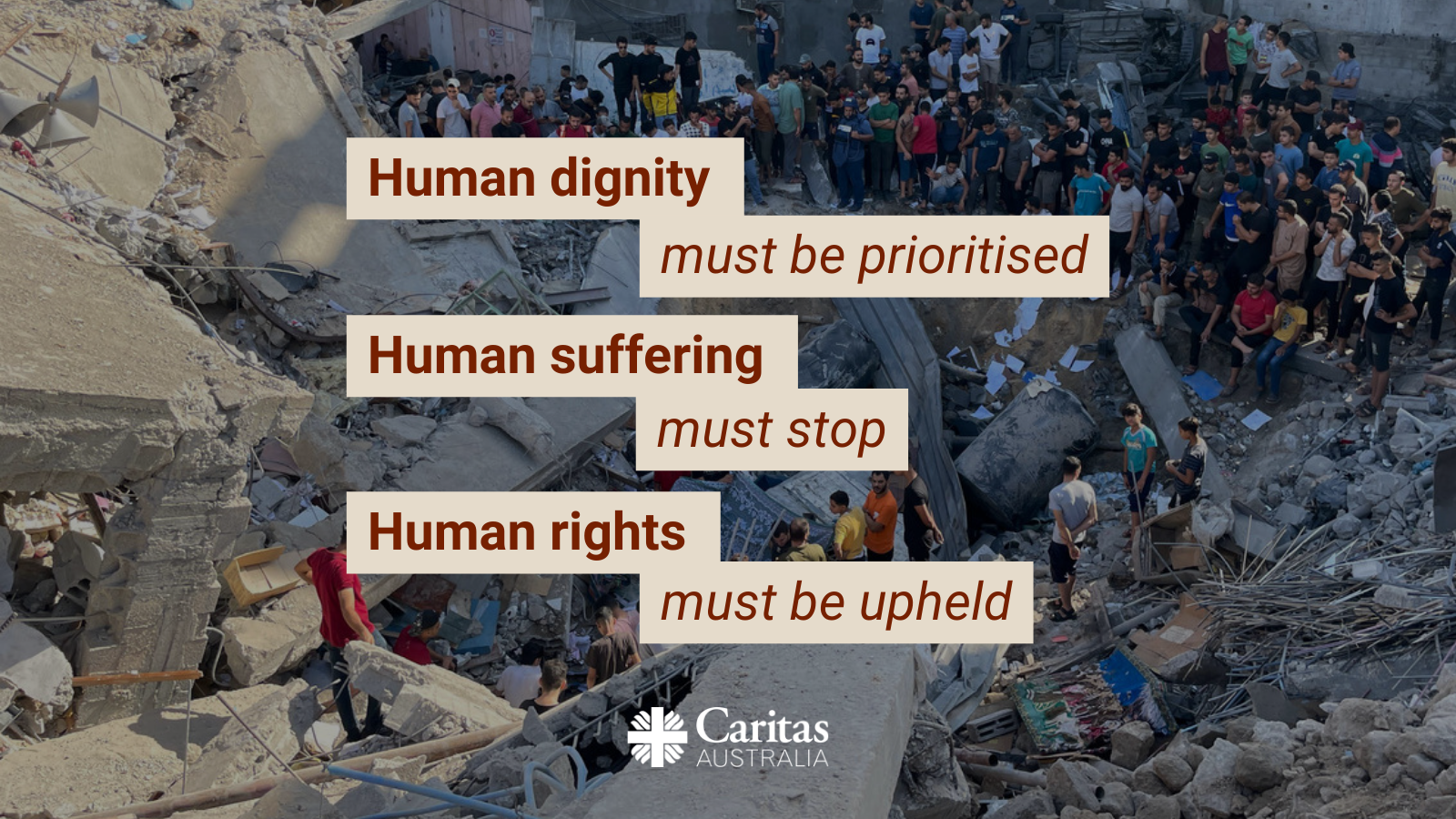
Political division will have dire humanitarian consequences in Gaza
Early in 2024, the UN International Court of Justice ordered that Israel must prevent possible acts of genocide in the conflict, but the report fell short of ordering a ceasefire – something humanitarians have repeatedly asserted the people of Gaza desperately need if they are to survive.
This was followed by the suspension of UNRWA funding from major Western powers following allegations against a handful of UNRWA employees.
Following these developments Sally Thomas Humanitarian Emergencies Lead at Caritas Australia reflected on the peacekeeping potential of humanitarian aid, stating that “without adequate aid funding the humanitarian crisis will escalate, and more suffering could bring more tension to the Middle East as countries outside of Israel and Gaza react. Conversely, properly administered humanitarian aid that sees innocent civilians safeguarded can play a vital role in de-escalating conflict.”
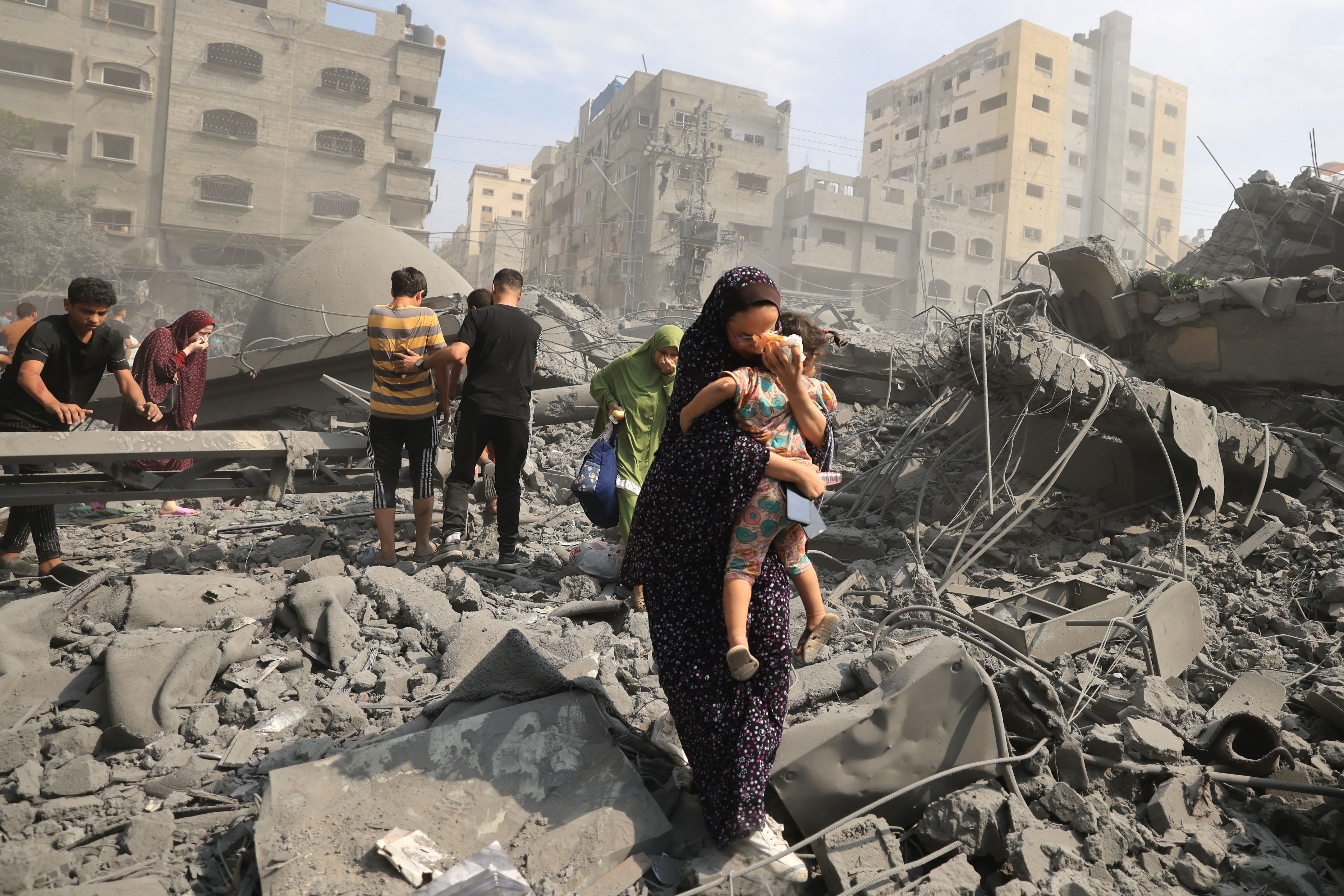
Palestinians evacuate the area following an Israeli airstrike on the Sousi mosque in Gaza City on October 9, 2023. Photo Mahmud Hams Getty Images
Conflict in the South of Gaza: A humanitarian perspective on evacuation orders
Pre-October 7th the Gaza Strip was already one of the most densely populated areas in the world, with 2.2m people living in about 365 square kilometres. 8 in 10 people Gaza were already reliant on international aid. Humanitarian aid has been limited to around 3 per cent of pre-conflict levels, with bombardment having disrupted critical infrastructure. This lack of resources and infrastructure is now worsening the impact of overpopulation in Gaza, as people are forced to crowd together for access to limited necessities such as water, food, healthcare, and toilets.
Latest News
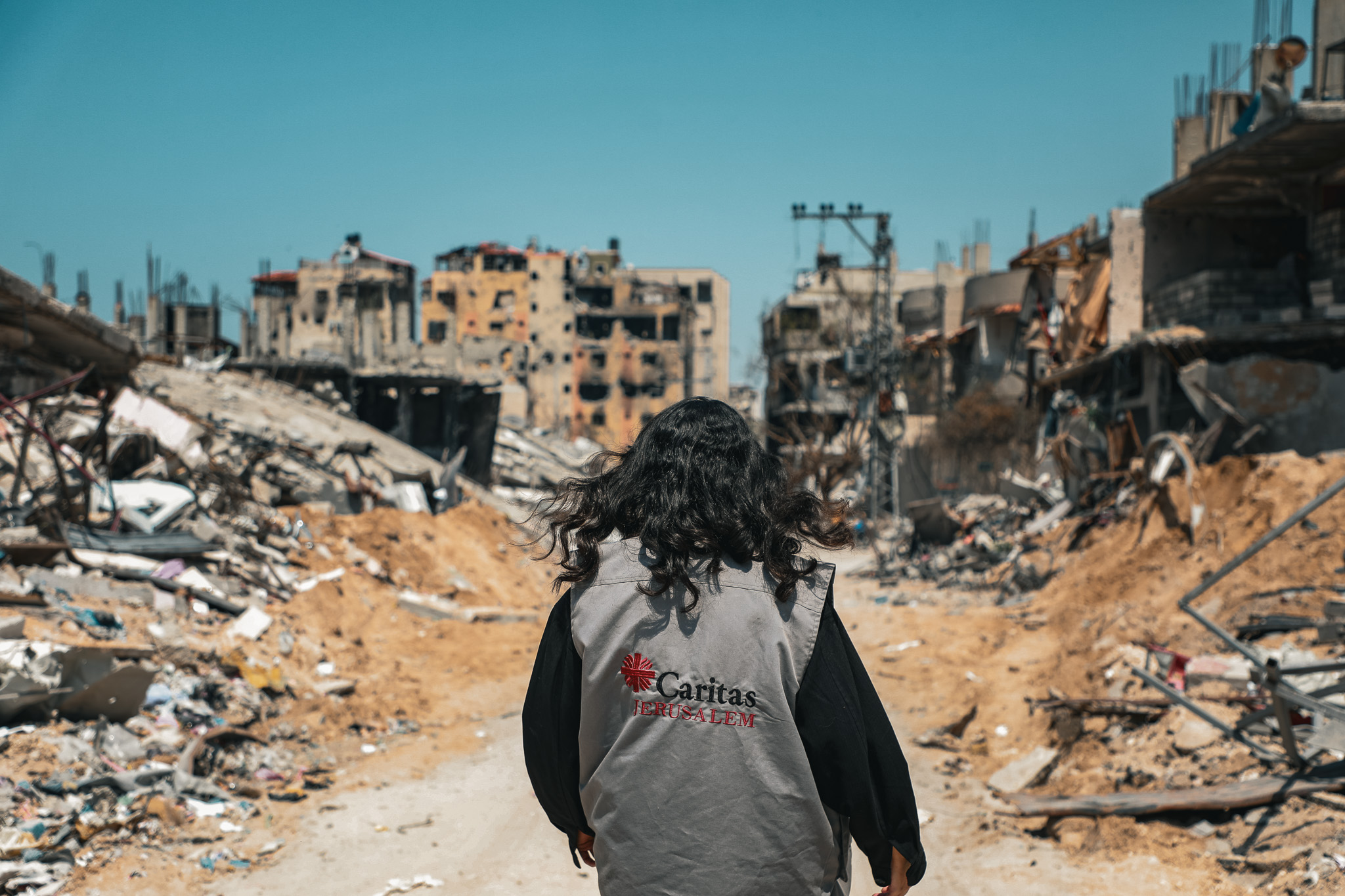
A Caritas worker walks through the destruction in Gaza. Photo credit: Caritas Jerusalem.
Caritas Australia welcomes a $10m government aid package for Gaza
Caritas Australia has welcomed a $10m aid package to support the World Food Programme in Gaza, announced today by the Minister for Youth, Dr Anne Aly. This aid investment follows months of stifled aid routes and numerous warnings that the entire population of 2.2m is facing famine. At present UN figures put the number of children at risk of dying of malnutrition at 3,000. To date over 37,000 Palestinian lives and 1,200 Israeli lives have been lost in this conflict.
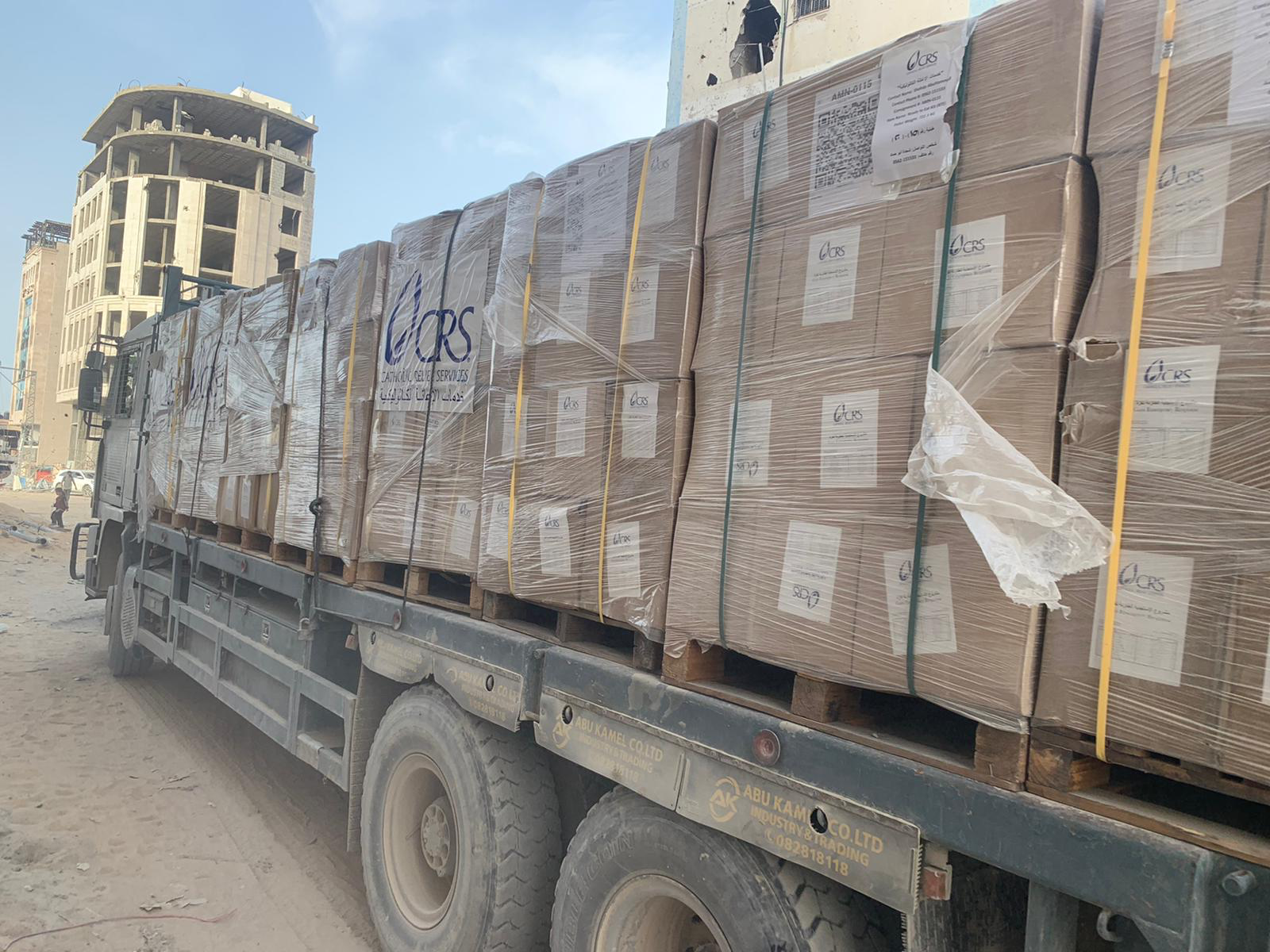
Supplies supported by the Gaza Appeal entering Gaza. Photo Credit: CRS.
Supplies reach northern Gaza as Caritas partners face evacuations in the south
This week Caritas partners in Gaza reported the successful delivery of supplies to support 2,500 families in northern Gaza. The report stated teams on the ground are “hopeful that we will see other supplies moving into Gaza soon - especially shelter materials given that there are now over 800,000 newly/re-displaced people since the evacuation orders.” Currently, more than 2,000 trucks and liters of fuel are stranded on the Egypt border. Our partners also have 10,000 tents waiting in Egypt and Jordan, alongside tarps, hygiene kits and other essential items.
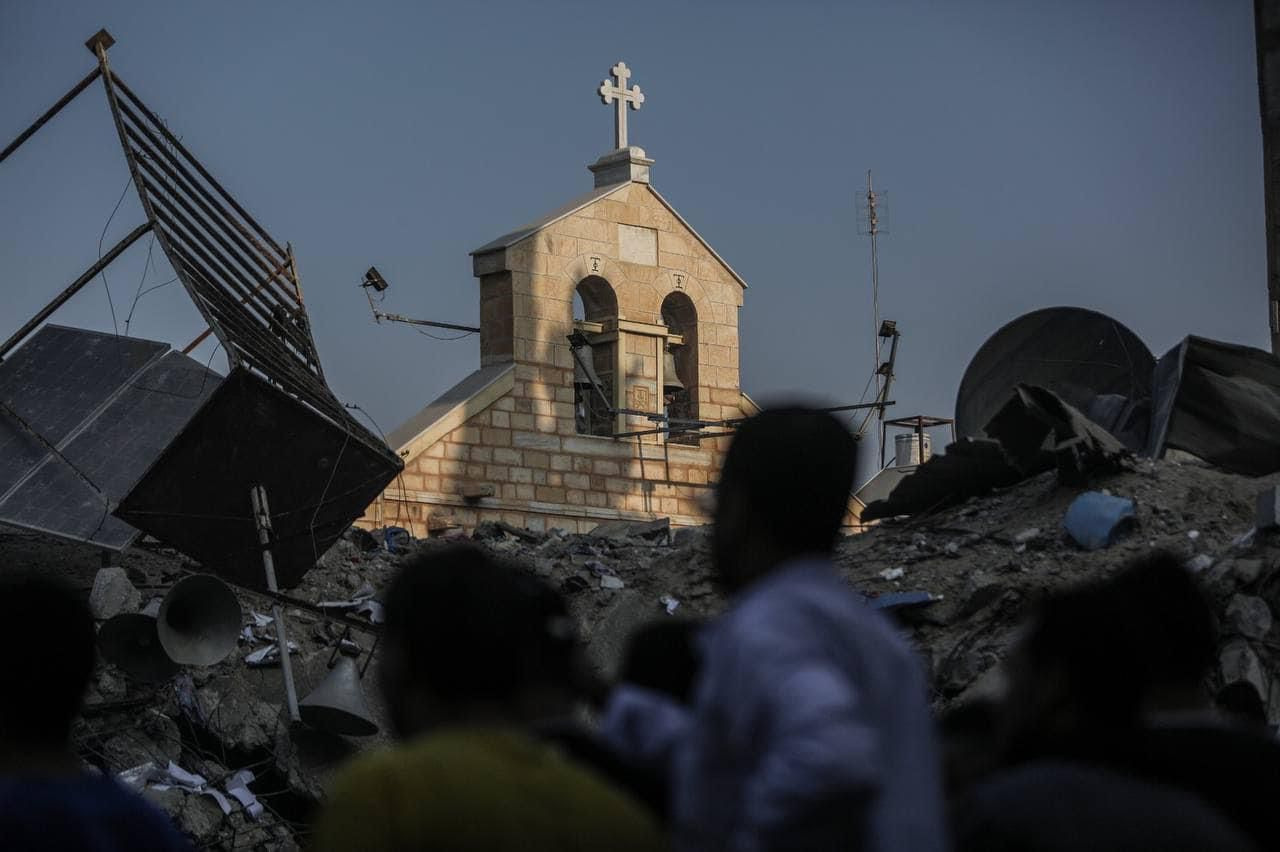
Remaining structure of a church among damage caused by an air strike. Photo Credit: Caritas Jerusalem
Caritas network continues to focus on dignity and hope within Gaza as aid routes are stifled
Despite ongoing bombardments, displacement, loss and personal risk, our partners on the ground have continued responding to the exceptional humanitarian challenges in Gaza. Our Caritas network has 61 staff currently in Gaza. All are now displaced, with some living in Church compounds and others taking shelter in Rafah.
Where the funds go
78%
of funds are spent on implementing Local and International Programs, including important education and advocacy in Australia to amplify the voice of our partners.
15%
of funds are spent on Fundraising, so that we can maintain and expand the scope of our humanitarian and development partnerships and work across the globe.
7%
of funds are spent on infrastructure, systems and people that make the work we do possible.
Other Emergencies
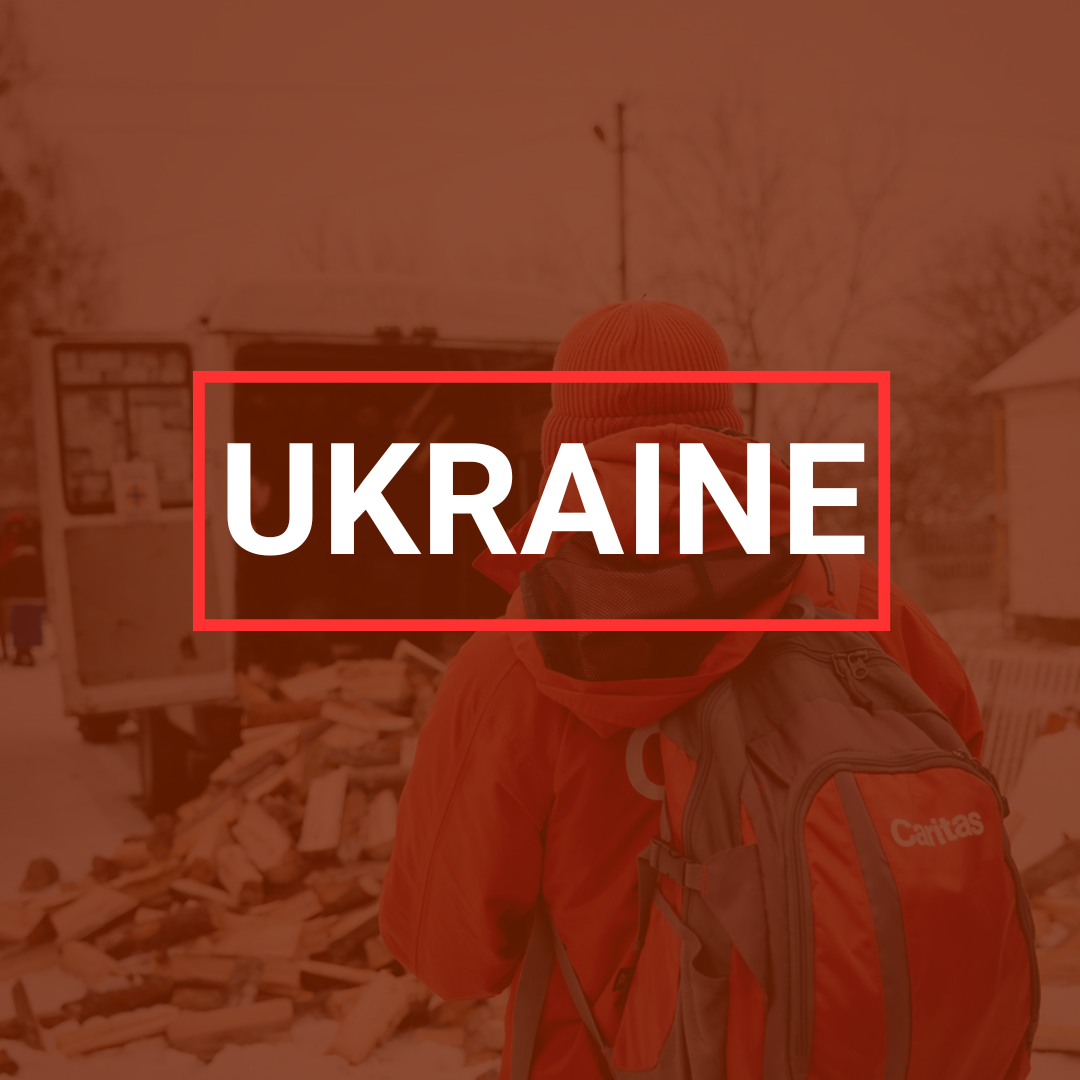
Ukraine War
17.6 million people are in need of urgent humanitarian assistance, as we pass the 2-year anniversary of the invasion.
Read More
Papua New Guinea Landslide
Remote communities in Papua New Guinea have been devastated by a catastrophic landslide. Hundreds are feared dead, with the United Nations estimating that at least 670 people may have lost their lives.
Read More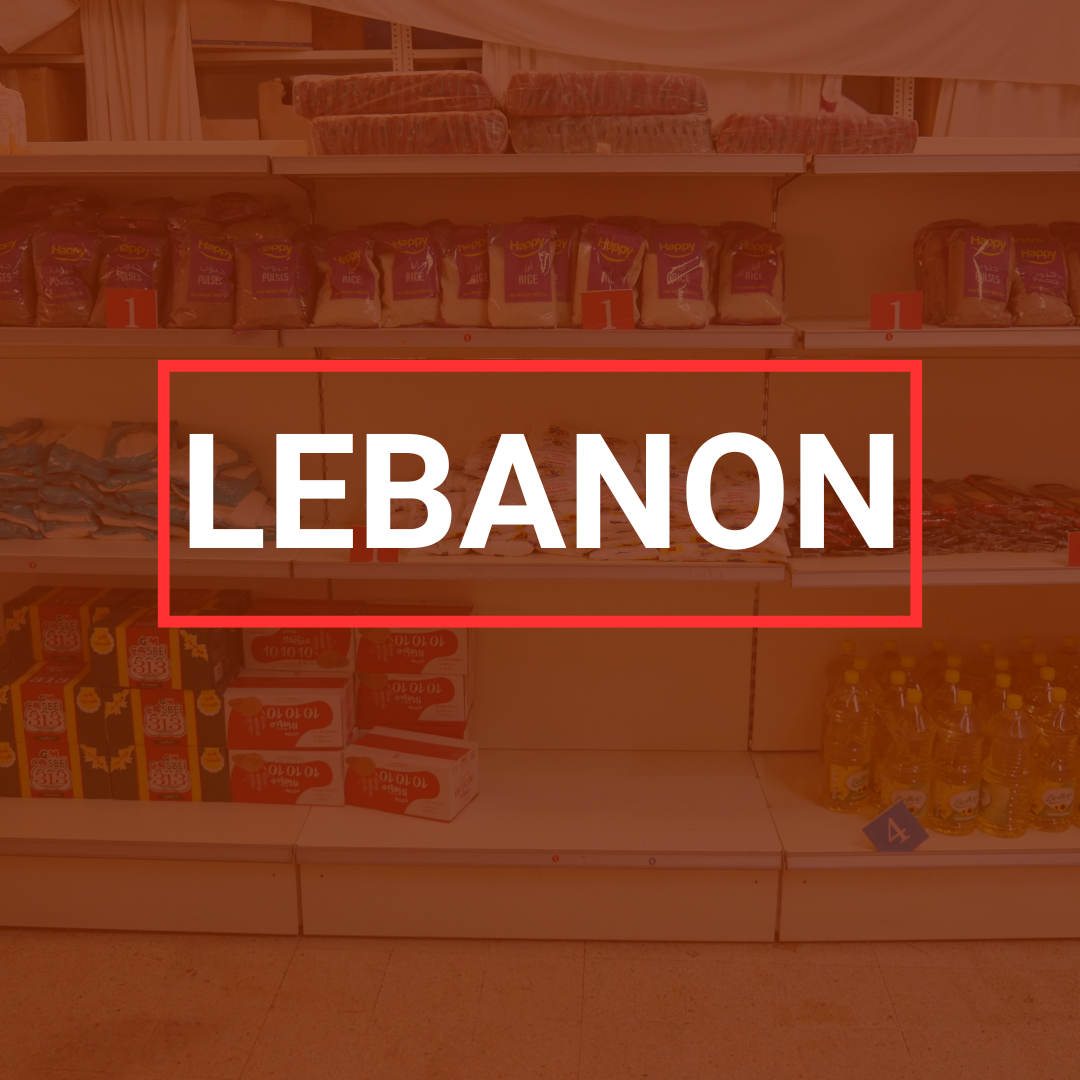
Lebanon Economic Crisis
Lebanon is in the throes of an economic crisis that has brought the country to the brink of collapse. Food prices have risen 628% in two years, and the poverty rate has nearly doubled.
Read More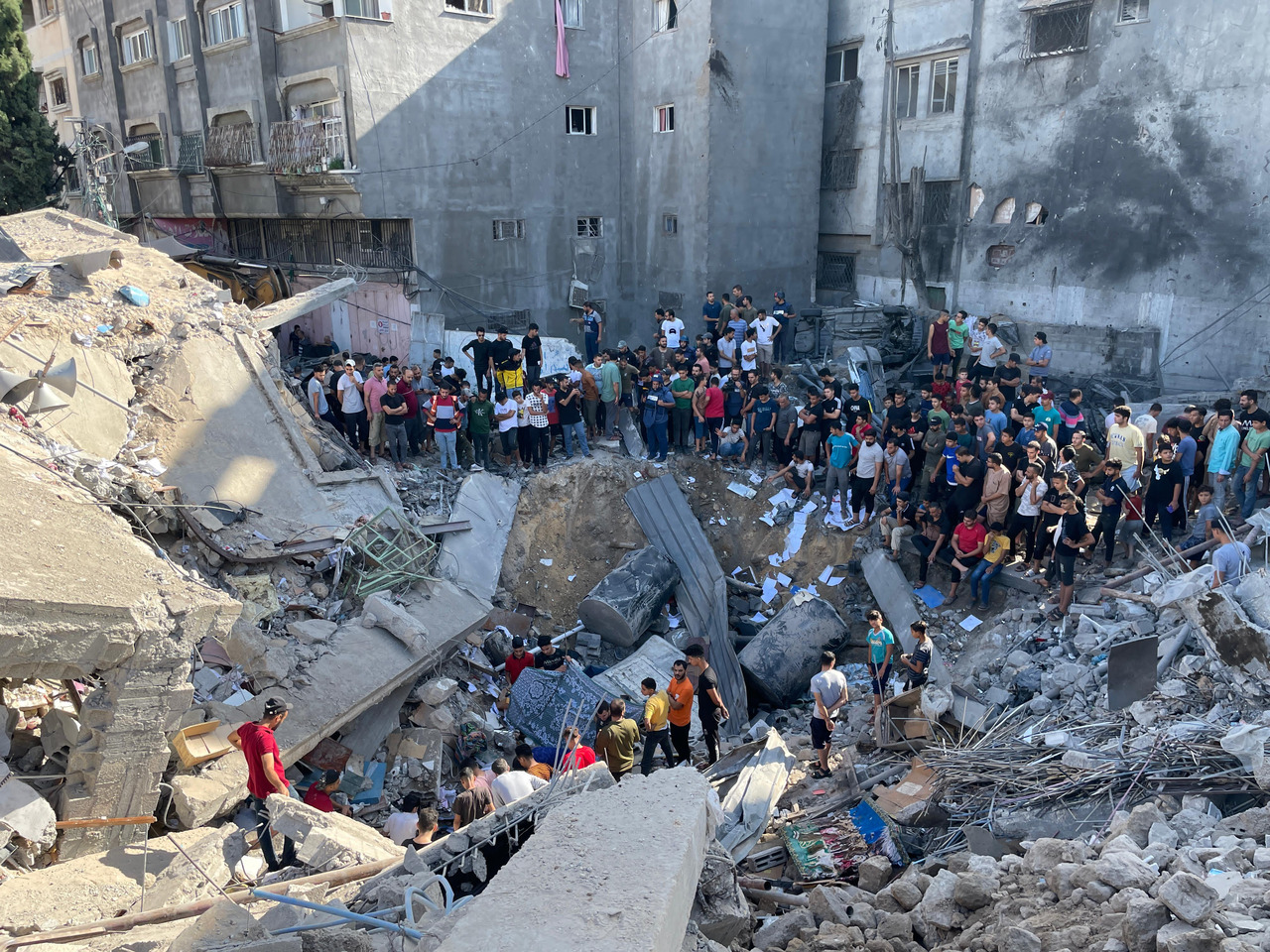
Rubble and damage after an airstrike in Gaza. Photo: Caritas Jerusalem.
Where does my donation go?
The funds you donate to this appeal go to Caritas Australia’s Emergency Response Fund and will be used to provide humanitarian assistance to communities affected by this crisis. Should circumstances prevent us from delivering aid to this emergency, or if excess funds remain after the crisis, donations will be directed to other emergencies where Caritas has humanitarian operations.
